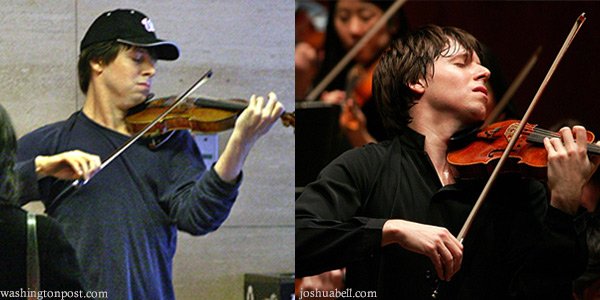Stay At The Mercy Of What Demands Your Attention Or Practice Deciding What Deserves It
Have you seen the footage of one of the best violinists in the world being ignored by a thousand commuters?
Joshua Bell collaborated with The Washington Post in 2007 to see how many of Washington’s Metro passengers would realize a world-class musician was peforming for them.
A lot fewer than they predicted. Of the 1,097 people who walked past the virtuoso busking in jeans and a baseball cap, only seven paused to listen more closely.
While the 18th century Stradivarius he performed on was worth millions, he collected a total of $52.17 in its case — and $20 of that came from someone who recognized him.
The double-edged sword of automaticity
Our brains conserve resources by streamlining the skills we’ve mastered so we can perform them without constant monitoring.
I appreciate not needing to think about driving, going to the bathroom, or walking a familiar path.
However, paying a little more attention to what we’re doing sometimes equips us to intentionally decide what to notice more often.
This mindful habit makes daily life feel richer.
Familiarity blindness
Pick one or two common tasks you can do without thinking. Experiment with taking them off autopilot for a few weeks to see if they change the experience of performing them.
Perceptual breakdown
Break the tasks down into their sensory components. One at a time, spotlight some of the visual, auditory, and somatic details as you complete the task.
As you unload the dishwasher, for example, notice the light shining against the plates, glasses tinkling against each other, and the weight of one spoon.
Mundane curiosity
Instead of relying entirely upon what insists on your attention, explore the sensory details of ordinary activities that never demand you notice them, such as drinking a cup of coffee, taking a shower, or petting your dog.
One day, you might even be moved by a sound nobody else seems to hear.
Renaud Capuçon recreated the experiment in the Paris Metro. His take weaves in images of an enthralled audience eagerly (and elegantly) gathering to pay top dollar to hear what had been met with complete indifference earlier in the day in a different context.

